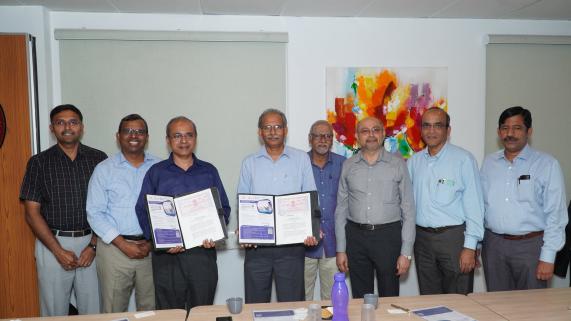
Kenya’s universities are rapidly emerging as global hubs of innovation and research excellence. As the demand for knowledge-driven economies grows, these institutions are redefining academic and research standards, positioning themselves as leaders in addressing local and global challenges.
This article explores how Kenyan universities are driving innovation, the transformative impact of their research, and the strategies propelling them to the forefront of modern academia.
A New Era of Academic Excellence
Kenyan universities have embraced a forward-thinking approach to education and research. Institutions such as the University of Nairobi, Kenyatta University, and Strathmore University are investing heavily in research infrastructure, fostering a culture of inquiry and innovation.
These universities collaborate with international institutions, leveraging global expertise to tackle pressing issues like climate change, public health, and sustainable development.
By prioritizing multidisciplinary research, Kenyan universities are breaking traditional academic silos. This approach encourages collaboration among faculties, enabling the development of comprehensive solutions to complex problems.
For example, initiatives combining technology, agriculture, and environmental science have led to breakthroughs in food security and climate resilience.
Groundbreaking Research Transforming Societies
Kenyan universities are at the forefront of research that addresses both local and global challenges. Their contributions include:
- Agricultural Innovation: Research institutions are developing drought-resistant crops and innovative farming techniques to combat food insecurity. Projects like the Water-Efficient Maize for Africa (WEMA) have significantly improved agricultural productivity in arid regions.
- Healthcare Advancements: Kenyan universities are spearheading studies on infectious diseases such as malaria, HIV/AIDS, and tuberculosis. Collaboration efforts with global health organizations have led to the development of affordable diagnostic tools and effective treatment protocols.
- Renewable Energy Solutions: With a focus on sustainability, universities are researching renewable energy technologies such as solar and wind power. These initiatives aim to reduce reliance on fossil fuels and provide affordable energy solutions for rural communities.
- Technology and Innovation: Kenyan universities are nurturing tech startups and incubators, driving the country’s reputation as a tech hub in Africa. Innovations in mobile technology, such as M-Pesa’s financial inclusion model, have roots in university-led research.
Strategies Behind the Success
Several key strategies have propelled Kenyan universities to the forefront of research and innovation:
- Strong Government Support: The Kenyan government has prioritized higher education and research through increased funding and policy frameworks. Initiatives such as the National Research Fund (NRF) provide grants to support groundbreaking research projects.
- International Collaborations: Partnerships with global institutions and organizations have enabled knowledge exchange, funding, and access to advanced technologies. These collaborations have enhanced the quality and impact of research.
- Emphasis on STEM Education: Kenyan universities are prioritizing Science, Technology, Engineering, and Mathematics (STEM) disciplines, recognizing their critical role in driving innovation. Scholarships and programs targeting underrepresented groups, particularly women, are expanding access to STEM education.
- Capacity Building: Continuous professional development for faculty and researchers ensures that Kenyan universities remain competitive on the global stage. Training programs, workshops, and conferences keep academics abreast of the latest research trends and methodologies.
Challenges and Opportunities
Despite their remarkable progress, Kenyan universities face challenges such as limited funding, brain drain, and inadequate infrastructure.
However, these obstacles present opportunities for growth and collaboration. Increased investment from the private sector, alumni networks, and international donors can bridge funding gaps.
Moreover, creating an enabling environment for researchers—through competitive salaries and state-of-the-art facilities—can mitigate brain drain.
The Future of Research in Kenyan Universities
Kenya’s universities are poised to play a pivotal role in shaping the future of research and innovation. By addressing societal challenges through cutting-edge research, they are not only transforming Kenya but also contributing to global knowledge.
The integration of technology, interdisciplinary approaches, and strong partnerships will continue to propel these institutions to new heights.
As Kenyan universities redefine modern research standards, their success serves as a blueprint for other nations. By fostering innovation, investing in education, and addressing pressing global issues, they exemplify the transformative power of higher education in the 21st century.
Conclusion
Kenya’s universities are driving innovation and redefining modern research standards through groundbreaking initiatives and strategic collaborations.
Their contributions to agriculture, healthcare, renewable energy, and technology underscore their commitment to addressing local and global challenges.
With continued investment and support, Kenyan universities will remain at the forefront of academic and research excellence, shaping a brighter future for generations to come.
Related articles
- Top 10 Provinces in Matric Results 2024/2025: Celebrating Academic Excellence
- South Africa’s Basic Education Department Unveils 2024 Matric Results
- Top 10 Students in KCSE Results 2024/2025: How to Check and Celebrate Excellence
- Top 100 Students in KCSE Results 2024/2025: Celebrating Kenya’s Brightest Minds
- Top 10 Schools in KCSE Results 2024/2025: Leading the Nation in Academic Excellence
- How to Check KCSE Results 2024/2025: A Step-by-Step Guide
- KCSE Results 2024/2025: How to Access, Interpret, and Plan Ahead
- Top 10 Students in Matric Results 2024/2025: Best Performers and Outstanding Achievements


